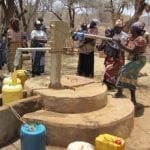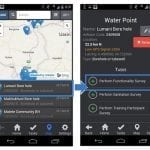mWater Field Test Kit
mWater
mWater Field Test Kit is a water testing kit designed to detect E.coli, coliform bacteria, nitrate/nitrite, and chlorine residual.
mWater Test Kit is a single-use water quality test kit designed to detect E. coli, coliform bacteria, nitrate/nitrite, and chlorine residual without the need for a power supply. The kit is manufactured and distributed by mWater. It is designed for community health workers, NGO’s, and people who do not have access to laboratories or incubators.
This product has been implemented by several humanitarian organizations like USAID DIV, The World Bank Innovation Fund, Water.org, WaterAid International, WaterAid Australia, Millennium Water Alliance, The Water Trust, charity: water, The Water Project, Riverkeeper, Earth Echo, Safe Water Network, UNC Water Institute, Ugandan Water Project, Water4.org, Drink Local Drink Tap, Wine to Water, Haiti Outreach, UNICEF, WHO, Water4, MSF, GAIN, and UN-HABITAT.
200 USD per kit (each kit contains 20 tests)
Primary competitors include 3M™ Petrifilm™ Aqua Coliform Count Plates, Watersafe Drinking Water Test Kit, and Safe Home ULTIMATE Drinking Water Test Kit. Several other water testing kits available in the market compete with this product, such as the MicroSnap™ Coliform and Colifast Field Kit.
Goal 6: Clean water and sanitation
Target users include community health workers, while the target buyers include humanitarian organizations and governments.



